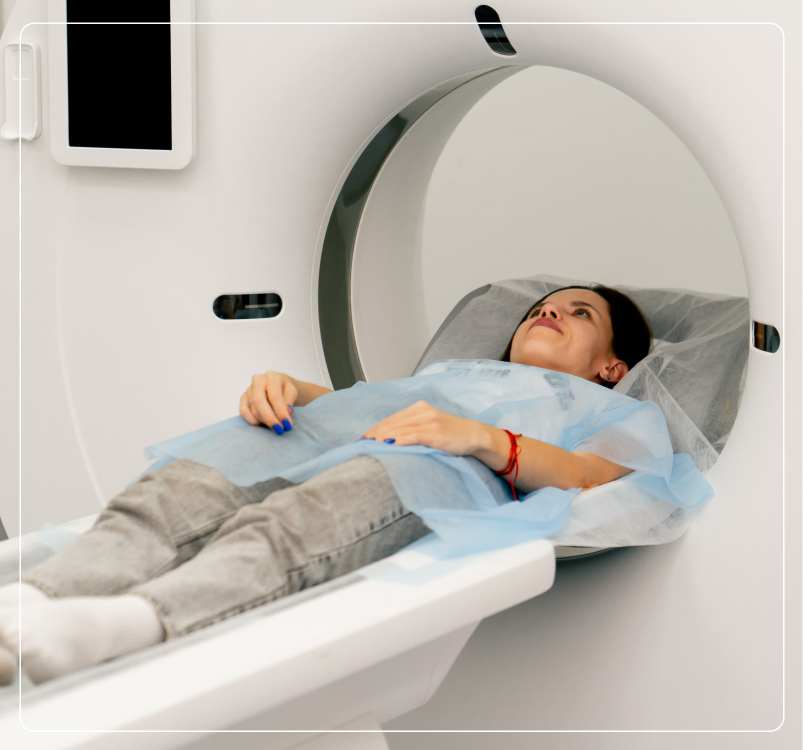Head & Neck Cancer
Dr. Mukti Mukherjee
[12+ Years Experience]
Radiation Oncologist In Kolkata
Home / Treatments / Head & Neck Cancer
Head & Neck Cancer Doctor in Kolkata
Head and neck cancer is a group of cancers that develop in the throat, larynx (voice box), mouth, nose, and sinuses. While anyone can be diagnosed with this type of cancer, it’s more common in people with a history of tobacco and heavy alcohol consumption. Early diagnosis and head & neck cancer radiation therapy in Kolkata can save lives timely.
Types of Head and Neck Cancer
Oral Cavity Cancer
-
Tongue cancer
-
Alveolar cancer
-
Buccal Mucosal Cancer
Pharyngeal Cancer
-
Nasopharyngeal cancer
-
Oropharyngeal cancer (e.g., Tonsil)
-
Hypopharyngeal cancer
Laryngeal Cancer
- Supraglottic cancer
- Glottic cancer
- Subglottic cancer
Reach out: Your path to quality care starts here
58, Canal Circular Rd, Kadapara, Phool Bagan, Kakurgachi,
Kolkata – 700054
Let’s Talk
Symptoms of Head and Neck Cancer
Throat pain (foreign body sensation)
Difficulty swallowing
Bleeding from nose/Sputum
Ear pain
Chronic hoarseness or voice change
Lumps or swellings in the neck
Mouth ulcers that don’t heal
Causes of Head & Neck Cancer

Tobacco Use
- Smoking cigarettes, cigars, or pipes.
- Chewing smokeless tobacco.
- Combined use of tobacco and alcohol significantly increases risk.

Alcohol Consumption
- Heavy alcohol consumption is a major risk factor, especially when combined with tobacco use.

Human Papillomavirus (HPV)
- HPV, particularly type 16, is associated with oropharyngeal cancers (affecting the tonsils and base of the tongue).

Epstein-Barr Virus (EBV)
- Linked to nasopharyngeal cancers, especially in certain populations.

Exposure to Carcinogens
- Workplace exposure to substances like wood dust, paint fumes, or industrial chemicals.

Poor Oral Hygiene
- Chronic irritation due to poor dental hygiene, ill-fitting dentures, or neglected oral care.

Dietary Factors
- Low intake of fruits and vegetables has been linked to increased risk.

Other Risk Factors
- Betel nut and betel leaf chewing, common in some parts of Asia.
- Immunosuppression (e.g., due to HIV or organ transplantation).
Evaluation of Head & Neck Cancer
Clinical Evaluation
- History of risk factors (e.g., smoking, alcohol, HPV exposure).
- Inspection and palpation of the oral cavity, oropharynx, nasopharynx, larynx, and neck.
- Assess for lymphadenopathy (enlarged lymph nodes).
- Examination using tools like a laryngoscope or nasopharyngoscope for deeper structures.
Imaging Studies
- CT Scan or MRI
- PET-CT Scan
- Ultrasound, X-rays
Biopsy and Histopathology
- Fine-Needle Aspiration (FNA)
- Tissue Biopsy
Molecular and Viral Testing
- HPV Testing
- EBV Serology
If you have any concerns about head and neck cancer, consult with Dr. Mukti Mukherjee for professional evaluation and guidance.
Management
Head and neck cancer age can influence treatment protocols. But some other factors that can impact radiation treatment include:
Patient’s overall health
Tumor location
Cancer stage
After considering overall circumstances, your doctor will suggest one or more treatment option:
Surgery
Radiation therapy
Chemotherapy
Targeted therapy
Immunotherapy
Frequently Asked Questions
Can head and neck cancer be completely cured if detected early?
Early-stage detection highly improves survival rates, with potential cure rates up to 80-90% for localized cancers. If you notice any unusual signs, consult your doctor immediately. Under the guidance of Dr. Mukti Mukherjee, the chances of a cure improve.
What is the typical age for head and neck cancer?
Head and neck cancer can occur at any age, but it’s more common in people over 50.
Can young people develop head and neck cancer?
While rare, increasing HPV-related cases are observed in younger populations.
How can I prevent head and neck cancer?
Early screening, avoiding tobacco, limiting alcohol, and maintaining good oral hygiene reduce risks.
How quickly do head and neck cancer symptoms progress from first signs?
Cancer progression varies widely, from weeks to months, depending on cancer type, location, individual health, and genetic factors.




